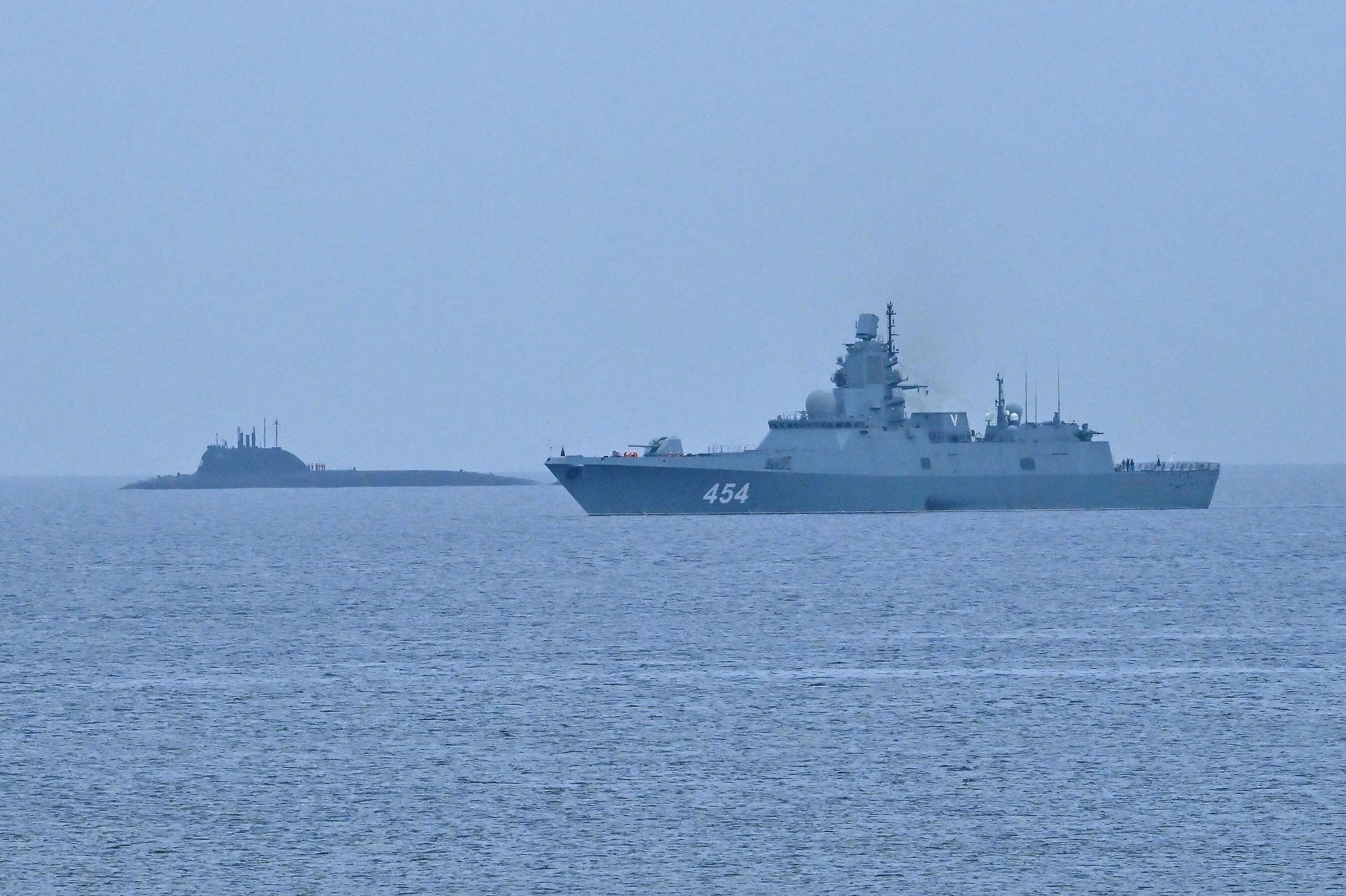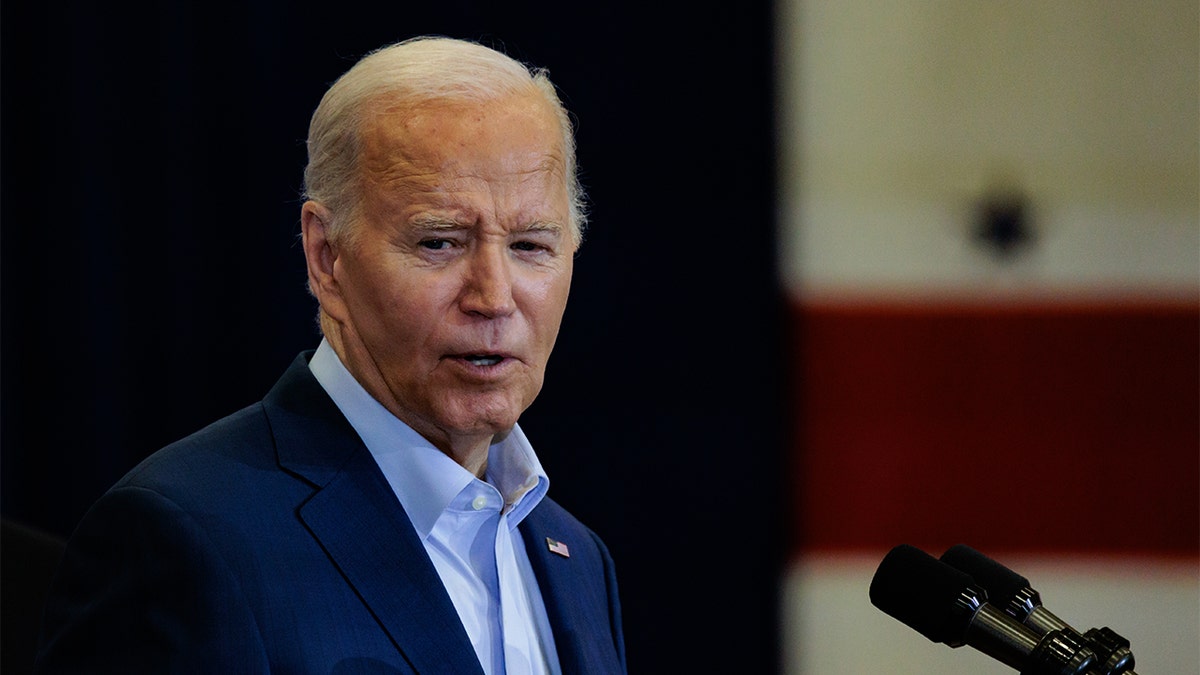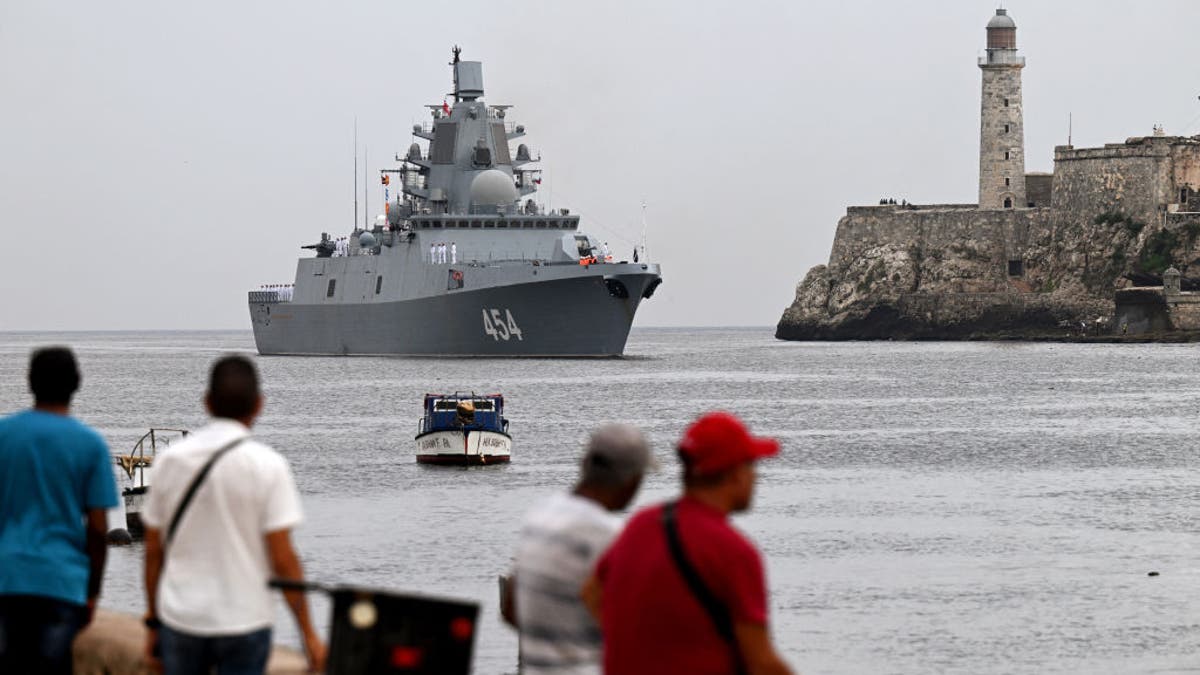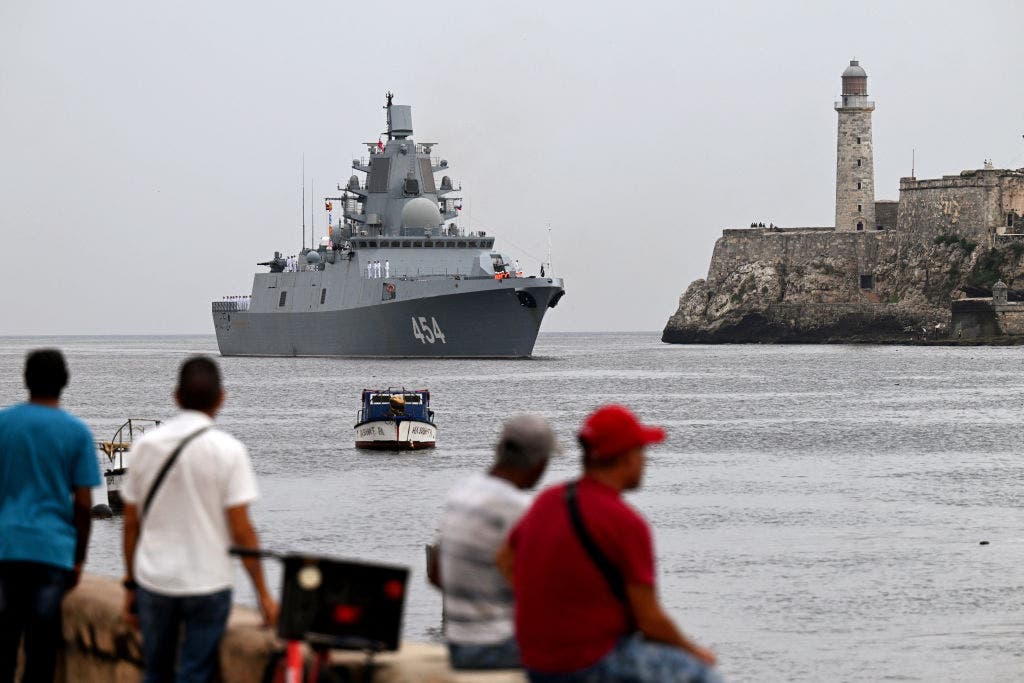Russian Warships in Cuban Waters: A Show of Force or a Political Move?
In a move that has raised eyebrows and concerns, a fleet of Russian warships, including the nuclear-powered submarine Kazan and frigate Admiral Gorshkov, arrived in Cuban waters on June 12, 2024. The ships are expected to remain in the region through the summer for planned military exercises in the Caribbean.
The deployment of Russian naval forces comes at a time when tensions between Russia and Western powers, particularly over Ukraine, have been escalating. In less than two weeks prior to this event, President Joe Biden authorized Ukraine to use U.S.-provided weapons to strike inside Russia if necessary for the protection of Kharkiv.
Russia's military presence in Cuba is not a new phenomenon; it has longstanding ties with both Cuba and Venezuela. However, the timing of this year's mission may serve multiple purposes, including strengthening Russia-Cuba ties and demonstrating a show of force to the United States.
The Kazan is one of a new class of Russian submarines called Yasen-class subs that have worried the US and NATO for years due to their stealth and strike capabilities. The Kazan is a nuclear-powered cruise missile submarine capable of carrying Oniks, Kalibr cruise missiles, and at a later date, Zircon missiles.
Venezuelan voters approved a referendum in December 2023 to claim sovereignty over the Essequibo territory, which accounts for two-thirds of Guyana and lies near big offshore oil deposits. The international community is awaiting a decision regarding Venezuela's claim from the International Court of Justice.
Some experts suggest that this deployment could also serve as an opportunity for Venezuela's government to shore up President Nicolás Maduro's bid for a third term in the July 28 election. However, it remains unclear whether this is a primary motivation behind Russia's actions.
The United States and its allies have expressed concerns over the Russian military presence in Cuba and have increased their naval presence in response. The U.S. Northern Command, U.S. 2nd Fleet, U.S. 4th Fleet, US Coast Guard Atlantic Area, and Canadian Joint Task Force [Atlantic] are conducting routine operations throughout the Atlantic to encourage responsible behavior by all parties involved.
Russia's actions have been met with criticism from various quarters, including the United States and its allies. Some experts argue that this deployment is a reminder of Russia's continued efforts to assert its influence in regions beyond its borders. Others see it as a direct warning to the United States and an attempt to disrupt Western unity.
As tensions continue to rise between Russia and Western powers, it remains to be seen how this situation will unfold. One thing is certain: the world is watching closely.





